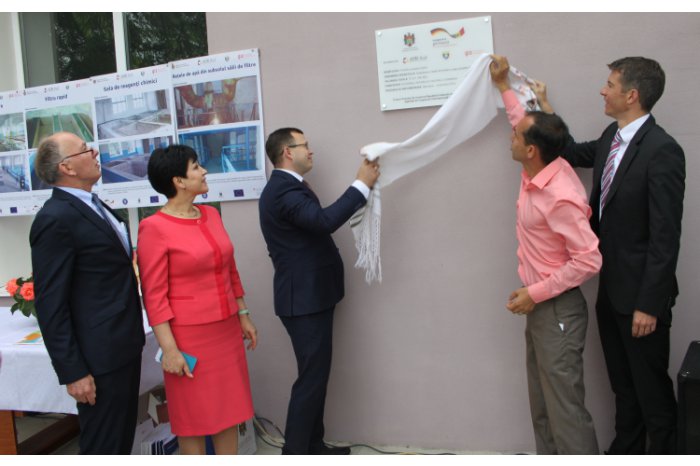Water supply system restored in two settlements of south Moldova
18:05 | 16.06.2017 Category: Regional
Chisinau, 16 June /MOLDPRES/ - The drinking water treatment station from the Cahul city and the sewerage system from the Rosu village were inaugurated at a festive ceremony on 15 June. Both investment projects were implemented with the support of the German government, through the German Agency for International Cooperation.
“This is a very important investment, first of all, for the Cahul residents, as they deserve benefitting from a qualitative service of supply with water and sewerage,” Cahul mayor Nicolae Dandis said at the inauguration.
For her part, the director of the Sud (South) Regional Development Agency (ADR Sud), Maria Culesov, stressed that, due to the German support, the Cahul city residents would have a modern water treatment station, which meets the requirements of environment from the European legislation and the national one. “After undergoing the restoration process, the water purifying station is practically new, with a maximal capacity of 17,400 cubic metres per day, which can serve a number of about 40,000 residents,” Culesov said.
“Moldova’s population is the target group of the German cooperation for development. Improving the living standards in the rural regions is at the head on our agenda. Germany, along with other international partners, has been active in the implementation of regional projects in Moldova,” a representative of Germany’s Embassy in Chisinau, Florian Seitz, said.
The restoration of the drinking water treatment station from the Cahul city and the construction of the sewerage system in the Rosu village are part of a project titled, Improvement of Water and Sewerage Service in Cahul District, implemented within a programme, Modernization of Local Public Services in Moldova, in partnership with the Regional Development and Constructions Ministry, ADR Sud (South) and the local public administration of the Cahul municipality and Rosu village. The works were carried out on the period September 2015-December 2016 and had a budget of about 27 million lei.
(Reporter L. Grubii, editor L. Alcaza)

